Interview. Great need for hospital chaplains in Ukraine
16 May 2024
Andriy Vasenda, a CITA missionary from Ternopil who has been regularly visiting a local military hospital for more than a year, shared his story and experience of ministering to seriously wounded soldiers in an interview.
Why did you decide to serve the military in a hospital? What preceded it?
I chose this ministry because of the great need for chaplains today. In hospitals, especially in Ternopil, where I serve, there are many new severely wounded who need spiritual support and psychological help.
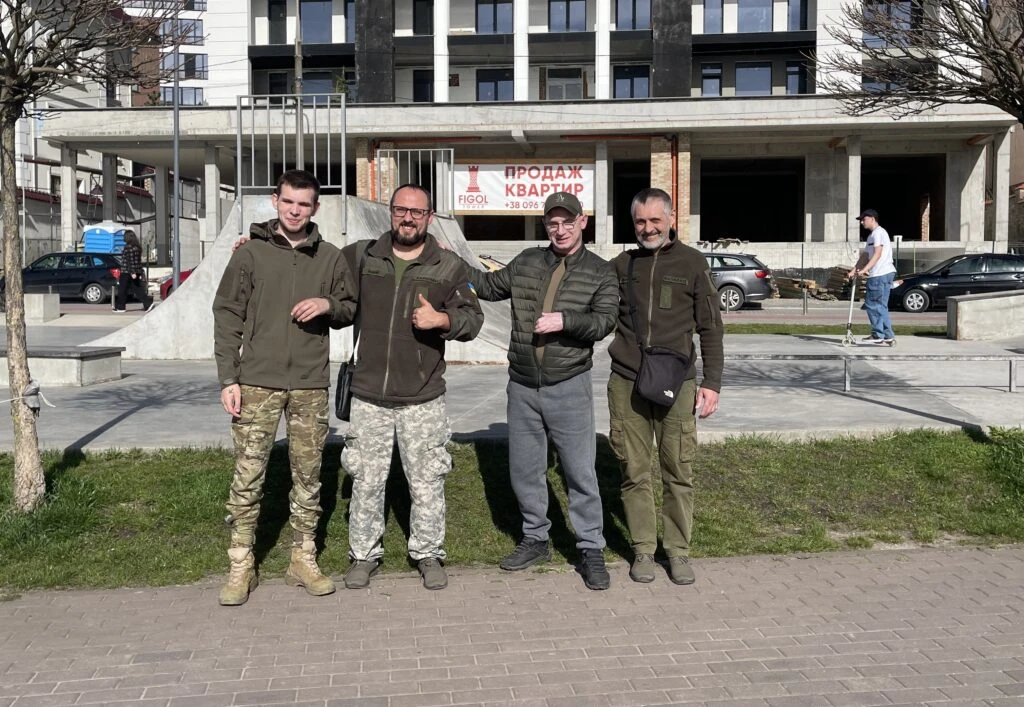
I believe that every church should have one question on its agenda: How can we help such a category as our wounded soldiers?
And I felt God’s call to serve them.
Tell us about your first experience of chaplaincy in a hospital. Who was that soldier?
My first experience with soldiers in a hospital was before I was called a chaplain.
I was asked to take food to the soldiers and talk to them. I was very scared because I did not know what to talk to them about, how to talk to them, what to ask and what not to ask.
I did not know what to expect, I thought these soldiers would be aggressive. At the same time, I felt that I could become one of those who could help them.
I remember Ilya, Nazar, and Kostia welcoming us with great joy and then not wanting to let us go and asking us to come back. Then I realized that they and people like them needed me.
What do you usually talk about with the soldiers in the hospital?
First, we get to know each other, find out how they got to the hospital. I would call them “no-brainer” questions to break the ice.
The most important thing is to feel the person, to read between the lines, to be flexible. We are talking about life.
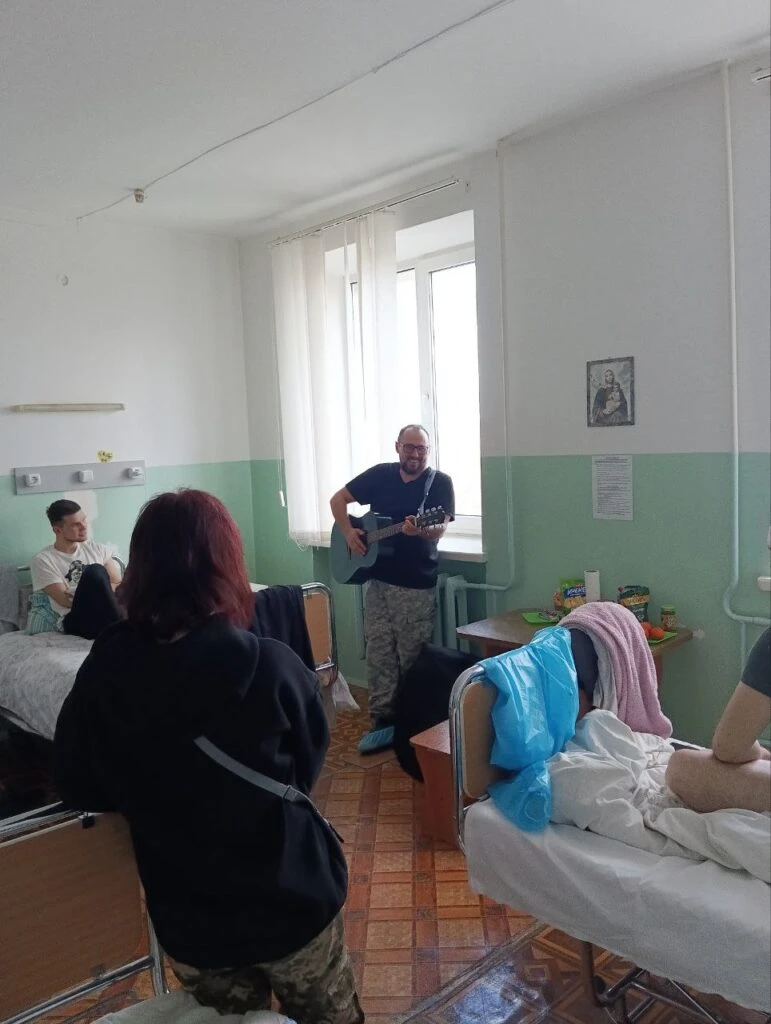
I also often take my guitar and offer to sing, and usually no one minds. Questions should be as simple as possible, easy. It should be a free conversation, like between friends.
What qualities do you need to serve veterans in hospitals?
You have to be flexible, without that it will be very difficult. You have to be humble and patient. You have to love them, because without love it is impossible to serve. You have to be cheerful: you have to give them hope, a smile is very important.
What does it mean to be flexible in communicating with the soldiers?
If I notice that a topic in a conversation confuses a soldier, I change it immediately. In order to do this, I prepare several topics in advance that we can talk about. There are different situations where you have to navigate on the spot. For example, one of the soldiers we serve, it turned out later, had a problem with alcohol and I did not know it. On a fishing trip, he secretly drank everything he had and started asking for more.
I told him no, but he became very nervous. At first it was hard to understand how to proceed, but we had to make contact. I sat down next to him and began to ask him about his family, asking him to show me photos.
He was telling me so much about his family that he completely forgot about his recent desire to drink alcohol. Later I realized the reason: he needed more attention because we were distracted by the fishing.
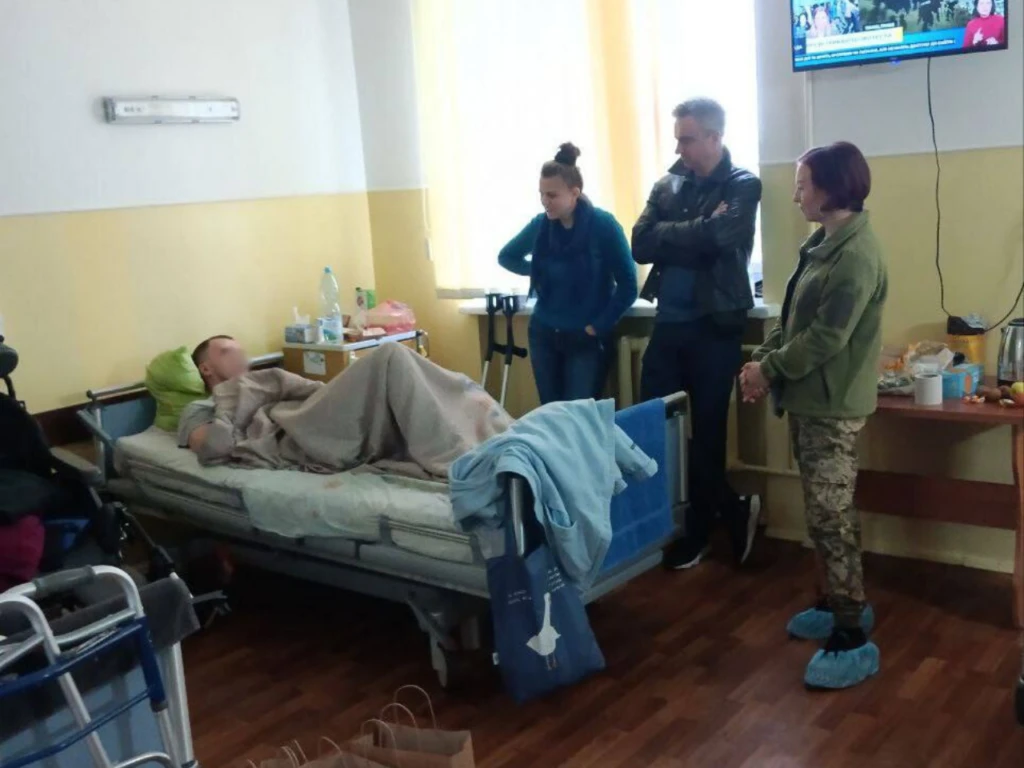
Things can go wrong when working with the military, so we have to be prepared for changes in the program we have prepared in advance.
How difficult is it to hear the stories of soldiers, to be an active listener?
For a chaplain, listening is the most important element of ministry. You have to be willing to listen for hours. The stories soldiers tell are not easy to listen to, especially when they talk about the horrors of war they have experienced. You have to be involved in the conversation, asking questions such as, “How did you feel? An important point is to let go of these stories from your heart, to free yourself.
How do you let go of these stories?
Indeed, their stories have a great impact on the soul. For me, it’s a relief to have someone listen to me after a meeting with the military. My wife plays that role and supports me in my ministry. It is also important for me to be filled with the Word of God. After these meetings, I usually do not meet with anyone else to give myself a chance to rest from what I have heard.
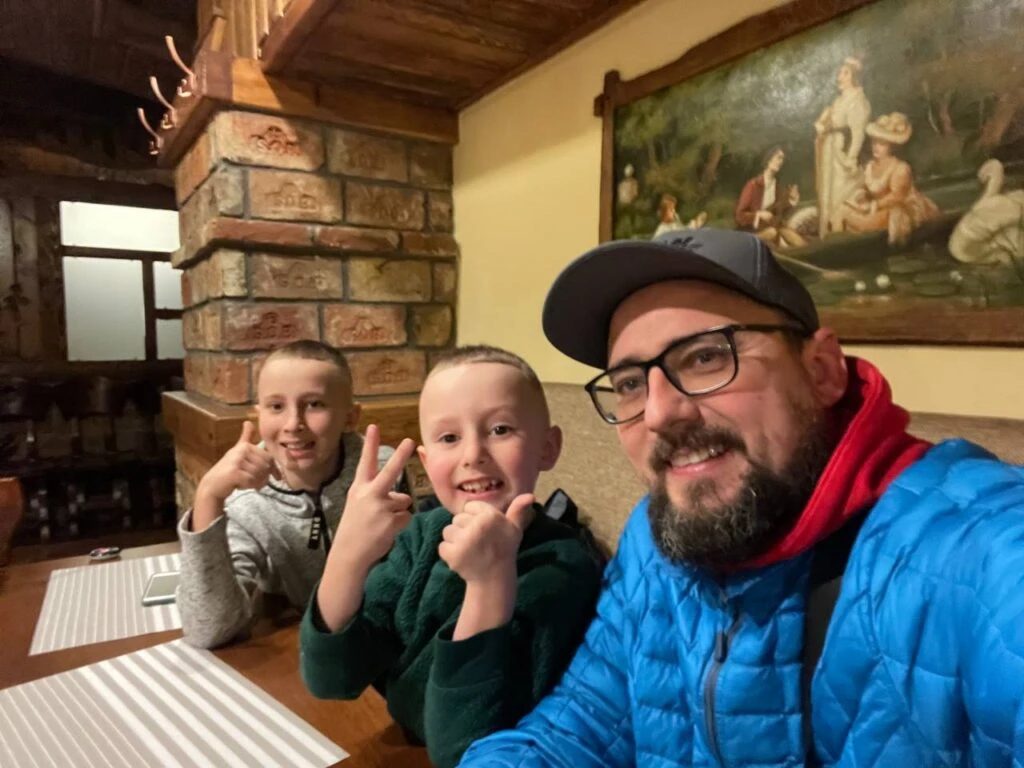
I go for a walk and play football with my kids.
In order to be effective in your ministry as a chaplain, you must have time to rest. It is necessary to realize that it is impossible to serve the military in hospitals every day because burnout is inevitable.
You have to distribute your energy to stay in the resource. I also believe that for more effective service it is best to serve a narrow circle of soldiers and be dedicated to them.
The most important element of recovery for me is prayer and reading the Bible, giving God the opportunity to restore me.
How do you build relationships with soldiers? When can you say that they have begun to trust you?
Building relationships with soldiers, like with anyone else, does not happen the first time. It is a process. But what they really notice is sincerity, whether you really care about them. We visit the same guys several times, take their phone numbers, collect their dates of birth, because you need to know something about them to build a relationship.
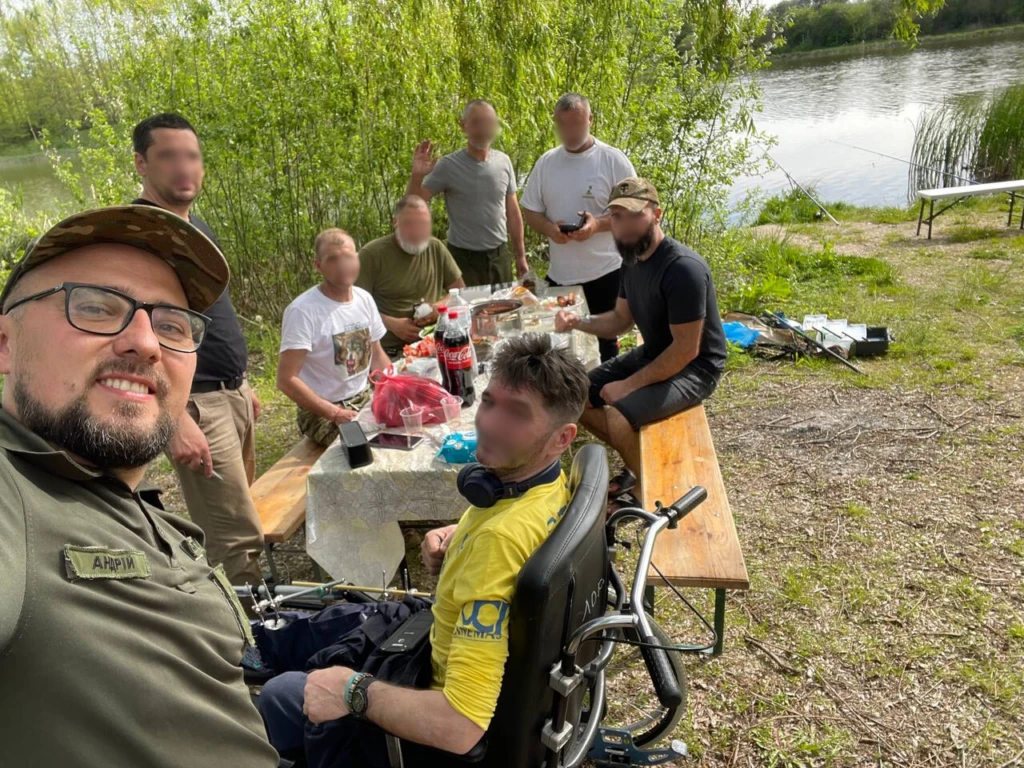
Later, we take them fishing or picnicking, where we can spend more than five hours together. We ride together, we eat together. This is how trust is built over time.
What is the attitude toward prayer and the Bible among the soldiers in the hospital?
We never begin our acquaintance with the soldiers with the Bible or prayer for them. The chaplain has to create the conditions for the soldiers to trust him. Over time, they begin to be interested in God, ask questions, and ask for prayer.
At each meeting, we try to give them words of hope, gratitude, and that we are praying for them.
Both the Bible and prayer are the right things, but at the right time: when a person opens up, when there is trust.
How do you respond to cases of PTSD in the military?
We’ve had a few cases where I didn’t know they had it, especially on trips where there could be sharp sounds. No one knows when or how this disorder will manifest itself, but as a chaplain, I have to be prepared for it to happen and be flexible, as I said before. If necessary, I can offer to take them to the hospital and ask how I can be of service at that time.
What kind of feedback do you expect from the military in the hospital?
For me, the feedback is manifested when I can see a change in these guys. For example, if they say that they used to want to commit suicide or do some wrong things, and after our communication they say that they have changed their minds, they feel better. This is very gratifying and encourages moving forward.
As a minister, what do you think should be done at the state level to help soldiers rehabilitate after the war?
To allow these guys to be heard, to build relationships with them. We need specialists who can help, such as psychologists and chaplains. To provide or facilitate, including financially, various opportunities for the rehabilitation of soldiers.
The state must help the severely wounded to socialize, to realize themselves in work and study in every way possible. Many wounded soldiers say that they are not needed either in war or in society.
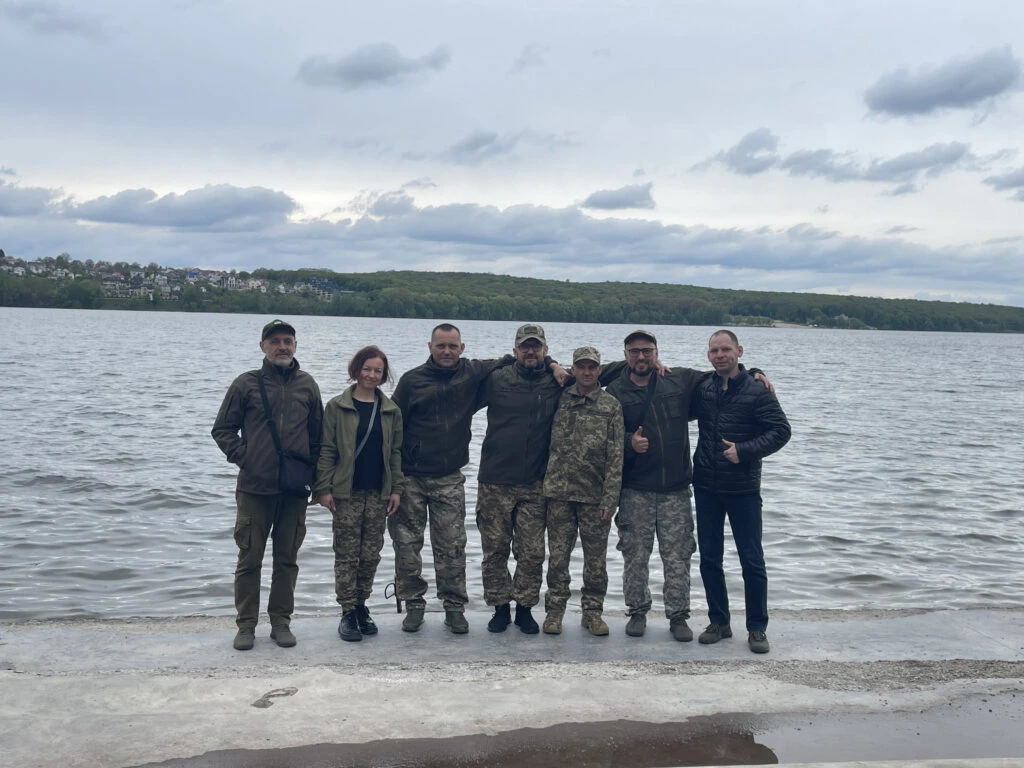
I believe that God will do a lot for severely wounded soldiers through chaplains. And today there is an incredible need for chaplaincy, because in military hospitals by far not all floors are covered by chaplains. And soldiers, both on the front line and in hospitals, are in great need of spiritual and moral support.
At the same time, it is important for each chaplain to understand where he belongs: either at the front or in a hospital, and to minister accordingly.
CITA Press Center.
